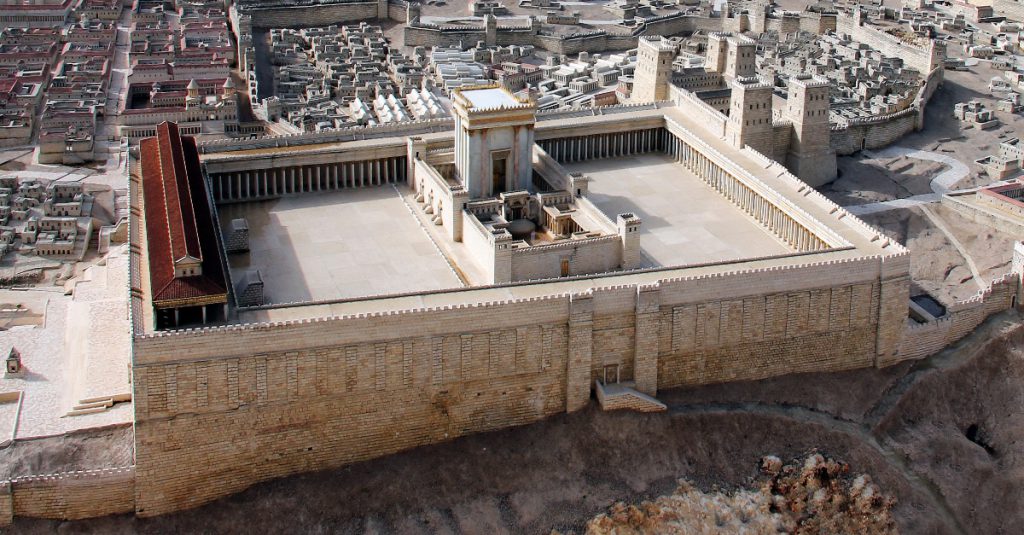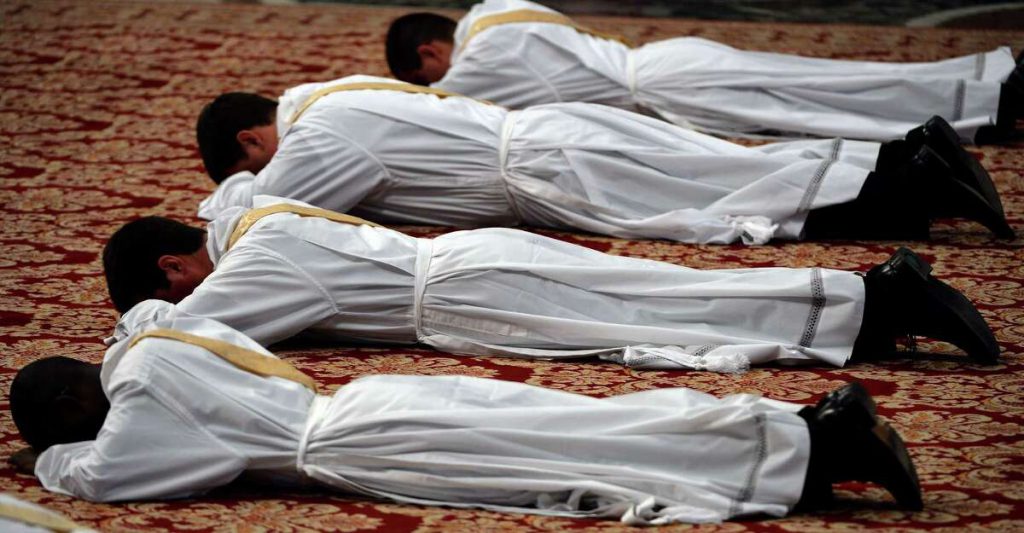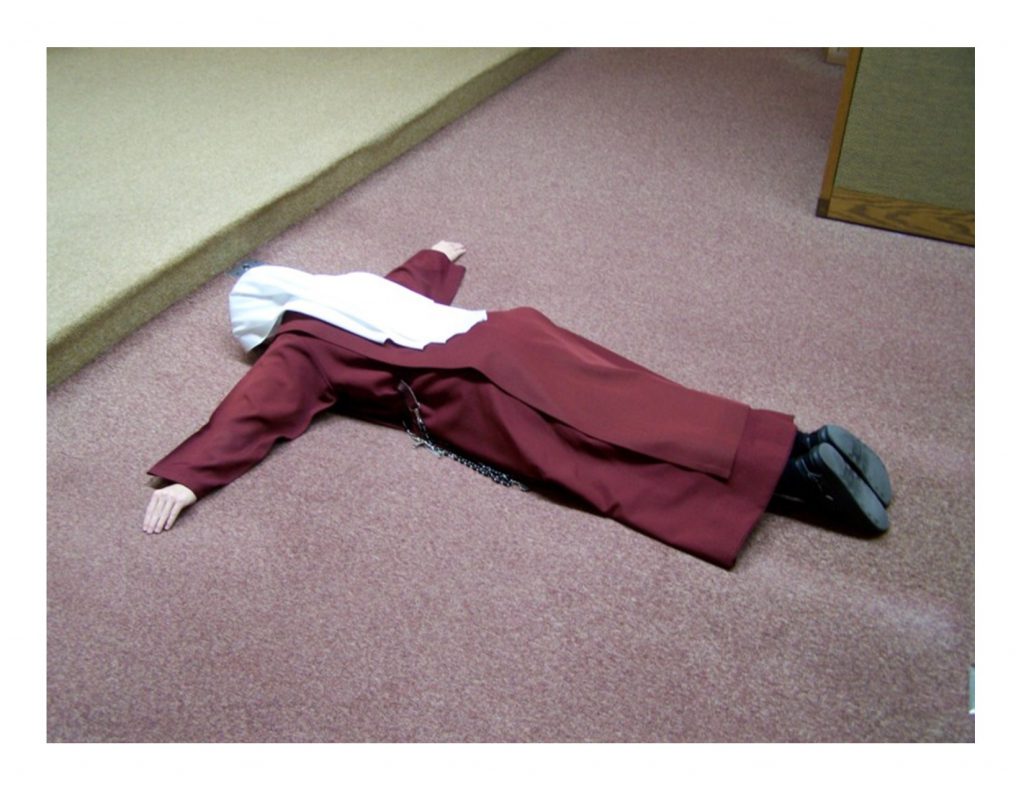Let’s meditate on shame and what it tells us theologically. I read an honest story about a multi-millionaire who, as a teenager, was made fun of because of his nose, with one classmate saying, “Man! You have one big nose!” He wanted to cry, but covered it with a forced laugh. Whenever he looked at himself in the mirror, he only saw his nose.
All of us have our wounds, where we’re not satisfied with our bodies. Can we think of a time when we’ve felt shame?
An insightful sentence in the First Reading helps explain our condition. After Adam and Eve chose not to trust God, it says, “Then the eyes of both were opened, and they knew that they were naked; and they sewed fig leaves together and made loincloths for themselves” (Gen 3:7). ‘They knew that they were naked’ means they realized they were vulnerable: ‘Adam might take advantage of me; he may want to use my body as an object for pleasure; he’s no longer thinking about what’s good for me. In the same way, Adam might think: ‘She might make fun of me, belittle, or manipulate me.’
Here’s the key point: The shame that Adam and Eve felt about their bodies is related to their relationship with God.
Before Adam and Eve’s Fall, everything was in harmony: They trusted God, they were in harmony with the world and each other, and there were no disordered desires within them. The Reading has this famous sentence, “And the man and his wife were both naked, and were not ashamed” (Gen 2:25). St. John Paul II points out that, before the Fall, Adam and Eve never used each other’s bodies. They were naked, but Eve never sensed that Adam was going to use her. She felt no fear, no need to protect herself. And Adam felt no embarrassment either: Eve wouldn’t make fun of him.
Dr. Mary Healy writes, “They saw each other the way God sees” (Men and Women Are from Eden, 27). How does God see us? When He looks at us, He sees our dignity as persons. When our relationship with God is right, we see ourselves and others the way God does!
Caring for our bodies is a good thing, and we should dress well and be well-groomed, but, when we obsess about our bodies, or there’s an unhealthy dissatisfaction about our bodies, or when we feel lust towards people, start realizing that these are signals that our relationship with God is off. As we’re beginning the penitential season of Lent, God the Father’s desire is that we be in greater harmony with Him, not only in spiritual ways but in bodily ways, because they’re all connected. Reconciliation with God comes not only through the soul but through the body, and also through Jesus’ body.
We see three examples of this in the Gospel. First, “He fasted forty days and forty nights, and afterwards he was famished” (Mt 4:1). The spiritual reason for fasting is dependence on God. For us, it’s not just a diet; we do it to remind ourselves that we need the Father. Jesus did it because He already knew that He needed His Father: “Man does not live by bread alone, but by every word that comes from the mouth of God” (4:4).
Have you ever come to a point in your spiritual journey when you say, “I’ve been trying to overcome my problems and it’s not working. I really need God. I’m willing to do anything, even fasting.” We come to a point where we express our need for God in our bodies.
One of the most fruitful spiritual programs for men is Exodus 90, where, for 90 days, they practice prayer, asceticism, and fraternity. Under the category of asceticism, it lists:
1. Take short, cold showers
2. Practice regular, intense exercise
3. Get a full night’s sleep (at least seven hours are recommended).
4. Abstain from alcohol, desserts, sweets; eating between meals; television, movies, or televised sports, video games
5. Abstain from non-essential material purchases
6. Only listen to music that lifts the soul to God
7. Only use the computer for work, school, or essential tasks (e.g., paying bills).
8. Only use mobile devices for essential communications; cut out non-essential texting, app, and internet use.
9. Take Wednesdays and Fridays as days of fasting.
(By the way, the equivalent program for women is called Fiat 90!) Men who have practiced these bodily disciplines say that they’re closer to God, and their perspectives change: They focus more on the soul, less on the body, and so start accepting the imperfections of their bodies in a healthy way. Their lust also diminishes because they realize that the body is not primarily a vehicle for pleasure; the body is meant to express love, to be laid down in service to others, which brings us to the second example.
According to most scholars, when the devil took our Lord Jesus to the pinnacle of the Temple, it’s located here at the bottom left corner of the Temple mount:
This rendering helps us visualize the 450-foot drop from the corner to the valley below:

What is the nature of this temptation? The devil suggests that Jesus jump off the pinnacle because God has promised in Scripture to rescue us. The temptation is that we force God to serve us the way we want. In a similar way, some people say: ‘If God is good, then He’ll grant people food; I’ll believe in Him when He helps me with my job, my studies, and my health.’
However, the reason people in the world don’t have enough food is not because of God; the World Food Program has said for years that there’s enough food for everyone, except that it doesn’t get to everyone mainly because of human corruption. Furthermore, sometimes God doesn’t give us a better job, etc., because He’s not primarily interested that we get what we want, but that we become saints.
So, Jesus doesn’t jump: He doesn’t get the Father to serve Him. Yet, Pope Benedict XVI wrote that Jesus did take a different kind of jump: on the Cross. With His body, He leapt on the Cross. He expressed His love for God and us when He said, “This is my body, which will be given up for you.”
When our relationship with God is right, we serve people with our body. If I could make a proposal: If we spent all our days serving people, we’d have no time for vanity or lust; we’d have no interest in obsessing about our appearance. I shared before how God freed me from pornography when I was 19. Here’s one thing I’d like to add: When I got to the seminary, the temptation to lust was basically eliminated because I was so busy! My whole day was filled with God, prayer, study, community time, and helping other people. In addition, I started wanting other people to be happy, more than myself. So much of the world’s time is wasted on pornography. Instead of this, our hands should be stretched out in service the way Jesus’ were on the Cross.
Speaking of the Cross, on Good Friday, when our church is always packed, I thought about adding another Good Friday service, but then I realized: This is the one day when teenagers and young adults get to give up their seats for other people, and stand for two hours. This is an opportunity: to let others have a chance to rest.
Third example: The devil takes Jesus to a high mountain offering Him glory and power, and says, “All these I will give you, if you will fall down and worship me” (Mt 4:9). He offers Jesus wonderful things, but the most important thing is missing, what is it? God the Father. I see this same temptation play out in our busyness: We’re so busy with good things that we have no time for God. The devil wants Jesus to ‘fall down and worship’ him, that is, to give him attention and focus. In an analogous way, we give our attention and focus to so many things but the Father.
Jesus says, “Worship the Lord your God, and serve only him” (Mt 4:10). It’s really interesting that St. Matthew and St. Mark tell us that, when Jesus entered the Garden of Gethsemani, He said, “‘My soul is very sorrowful, even to death; remain here, and watch with me.’ And going a little farther He fell on His face and prayed, ‘My Father, if it be possible, let this cup pass from me; nevertheless, not as I will, but as thou wilt’” (Mt 26:38-39). Pope Benedict XVI wrote that, in this moment, Jesus took on the fall of man; He enters our lowliness, and, from this physical position, He prays for us. And, in this same moment, St. Mark tells us that Jesus called our Father, ‘Abba,’ Dad (The Spirit of the Liturgy, 187).
You should try prostrating yourself, at home, or in the chapel. Here are images of prostrations during ordinations, consecrations, and adoration:
Don’t be embarrassed if others look at you, and try not to fall asleep, but, if we want to experience healing of shame and wounds, it comes from experiencing God as our Dad, our Daddy Who loves us, takes delight in us, and is so happy when we’re with Him.
To finish, whenever we experience shame, the first thought should be: Something’s not right with God; this is not the way it’s supposed to be. Furthermore, we can start thinking about how Jesus lived and loved in His body, and we can start imitating His fasting, His stretching out His hands on the Cross, and His falling on His face to the ground.





